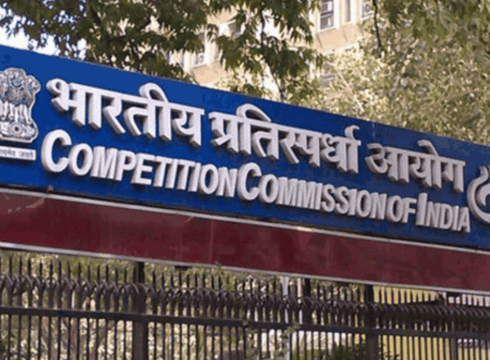Constant interference by the regulator might hinder the government’s aim to enhance the export capacity of MSMEs from 48% to 60%, the forum said
The CCI has recently made a change in its interpretation of the ‘relevant market’, leading to several digital platforms facing antitrust probes
The development comes at a time when the antitrust body is conducting several probes and raids into the business practices of Google, Amazon, Apple andTwitter, among others
Inc42 Daily Brief
Stay Ahead With Daily News & Analysis on India’s Tech & Startup Economy
The recent incidence of the retail market regulation by the Competition Commission of India (CCI) has shaken the MSME community on the ease of doing business online, said India SME Forum.
It is worth mentioning here that the CCI has made a change in its interpretation of the ‘relevant market’, leading to several digital platforms facing antitrust probes.
The development comes at a time when the antitrust body is conducting several probes and raids into the business practices of Google, Amazon, Apple, Twitter, and multiple Indian companies such as Zomato, Swiggy, MakeMyTrip, and GoIbibo, among others.
About the raids, the India SME Forum said in a statement that raids should not be considered as the primary method to get information to support an investigation, but it should be the last recourse for the director general (DG).
On May 10, the forum organised a discussion comprising bureaucrats, industry leaders, and legal experts to discuss how the regulators must desist from singling out online sellers in an arbitrary manner and highlighted the need for a level playing field among all retail players, offline as well as online.
The competition body is mandated to investigate anti-competitive practices and not to go beyond the ambit of its power or investigate areas beyond cartelisation. Its action sets a dangerous precedent for MSMEs operating online or wishing to adopt the channel, it said in a statement.
“At present, the CCI already has major challenges before it due to the behaviour of the commodities market. However, if it is targeting only online sellers, that sends the wrong message to all players across the value chain,” said Vinod Kumar, president, India SME Forum.
Highlighting the online-offline parity, former secretary and IAS, Aruna Sharma said that the input format for digital payments must be simplified as digital payments are enabled by the government. There should be parity in GST regulations for all sellers and not just online sellers, with a single slab for low-value goods and a separate slab for luxury goods. The government should provide tax benefits to small businesses that choose to go digital.
“A differentiated policy for the big and smaller sellers disincentives smaller sellers to grow big. The current policies seem to be focused on regulating just the larger players without looking at the whole ecommerce sector as a whole,” said Nirupama Soundararajan, economist and CEO, Pahle India Foundation.
The forum said India is home to about 6.3 Cr MSMEs and the recent move can be detrimental to their growth.
“There is a need for a balanced set of regulations governing online as well as offline businesses through the same lens. It is crucial to understand the global potential of ecommerce platforms to enter new domestic markets beyond borders and accelerate exports. Any move to over-interfere or overregulate the space can impact the already staggering MSMEs in India, it said.
Earlier, the CCI used to club both online and offline markets while determining the market dominance of a digital player. Now, it has started considering only the online segment as a ‘relevant market’ for these players.
According to legal experts, this change could have a considerable impact on the digital platforms when it comes to adherence to competition laws.
Last month, the CCI conducted raids at offices of Amazon India’s two top sellers, Cloudtail and Appario, for alleged cases of a competition law violation. However, the exact nature of the alleged violation was not immediately clear.
The antitrust body also raided a few seller offices of Amazon’s archrival Flipkart.
Earlier in April, the CCI also ordered a probe into unfair pricing, deep discounting and a few other alleged issues at food delivery startups Zomato and Swiggy.
The allegations against Zomato and Swiggy, as filed by the National Restaurant Association of India (NRAI), included unfair pricing, deep discounting and a few other issues, CCI said.
{{#name}}{{name}}{{/name}}{{^name}}-{{/name}}
{{#description}}{{description}}...{{/description}}{{^description}}-{{/description}}
Note: We at Inc42 take our ethics very seriously. More information about it can be found here.


